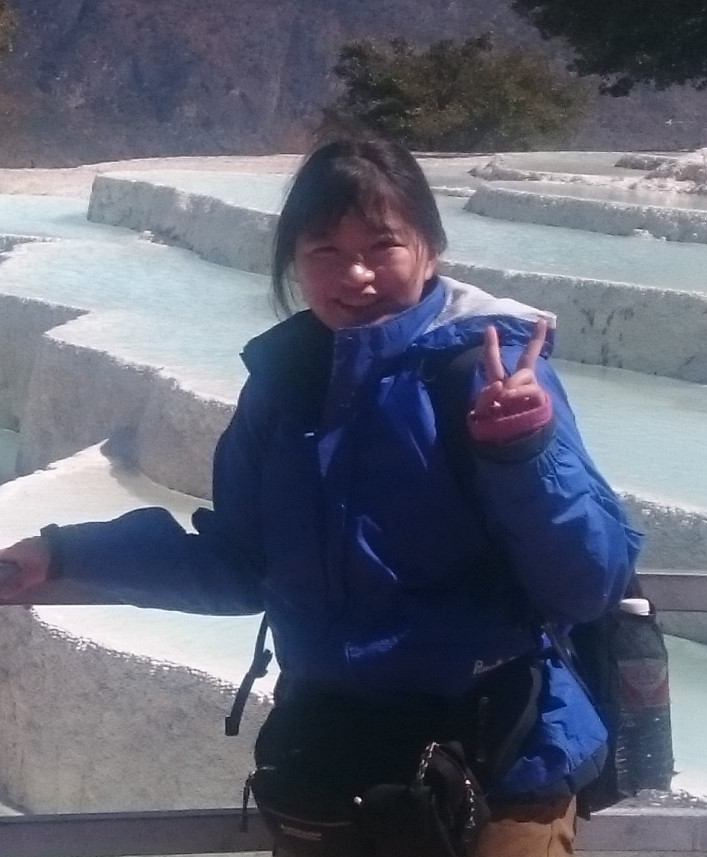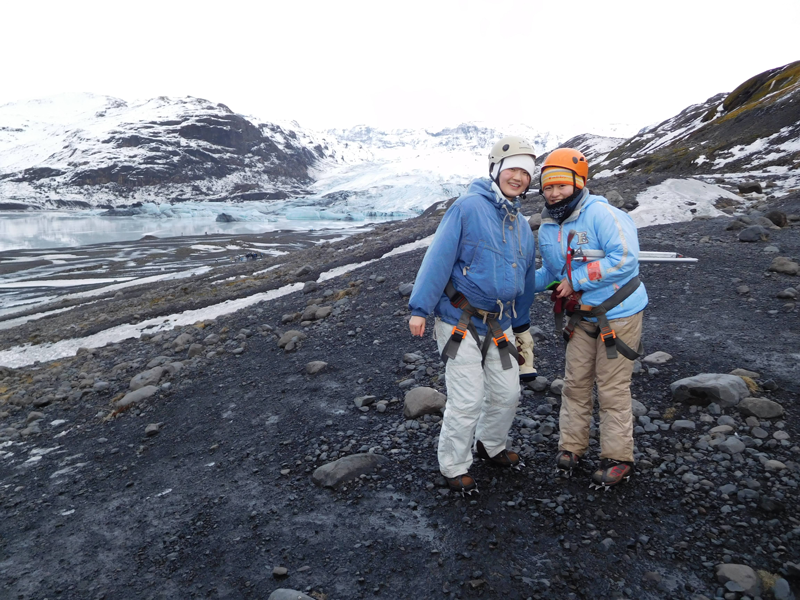Disclaimer: machine translated by DeepL which may contain errors.
Traveling Researchers
Aki Sakuma (Assistant Professor, Department of Earth and Planetary Science)

More than four years have passed since the world was shut down by the coronavirus pandemic, and procedures for crossing borders have largely returned to normal, so I feel that my old routine has returned. I was a first-year Doctoral student when the pandemic began, and as a student I looked forward to saving my part-time job money to travel with friends, so I was very bitter when the lockdown occurred. When I was a student about 10 years ago, the value of the Japanese yen was higher than now and airline tickets were cheaper, so I was able to travel to many places even with the money from my part-time job as a university student. Seeing the Northern Lights from a harbor in Iceland at night, visiting ruins while cycling in Thailand, and going on a foodie trip in Hong Kong are all fond and nostalgic memories for me.
 Hiking on a glacier in Iceland.
Hiking on a glacier in Iceland.It was the first time in my life that I saw a glacier.
Looking back, I think it was a family trip as a child that first taught me the joy of traveling and discovering new things. The hikes and museums that my parents and grandparents took me to during summer vacations not only gave me the hobby of travel, but also inspired me to become a researcher in the earth sciences. The fascinating mountain scenery and the fossils and minerals I saw in the museums were definitely a factor in my decision to pursue geology. Incidentally, when I told my parents that I was thinking of going on to the Faculty of Science instead of the Faculty of Engineering, where the majority of students go, they did not expect me to go there, and they did not take me there for the purpose of sending me down the path of geoscience. It is difficult to predict what will stick in a child's mind, and, if I may say so myself, education is a difficult thing.
My current research on earth history is based on sedimentary and geochemical methods. Specifically, I go out into the field to describe the structure, types, and characteristics of sediments, and bring back samples for analysis in the laboratory to investigate changes in the Earth's surface environment in the past. Because we are studying actual materials on the earth, we cannot always use simple physical or chemical models to describe them, and the results of our analyses are often unexpected. When I find out something new by examining and discussing such results, I feel a sense of joy similar to when I find something I have never seen before in my travels. I am sure that this is why I am doing research. As a novice researcher, I have more than 30 years left to spend on research. In continuing my research, there may be times when things do not go as planned and I may stumble, but I would like to continue to work steadily on my research while cherishing the moments that I find enjoyable.
Faculty of Science News collects essay submissions. We welcome all submissions, regardless of whether they are self-recommended or not. We especially welcome submissions from Faculty and graduate students. However, the Communications & Public Relations Committee will decide whether or not to publish your essay.Please send your contributions to rigaku-news@adm.s.u-tokyo.ac.jp.
Published in The Rigakubu News July 2024


